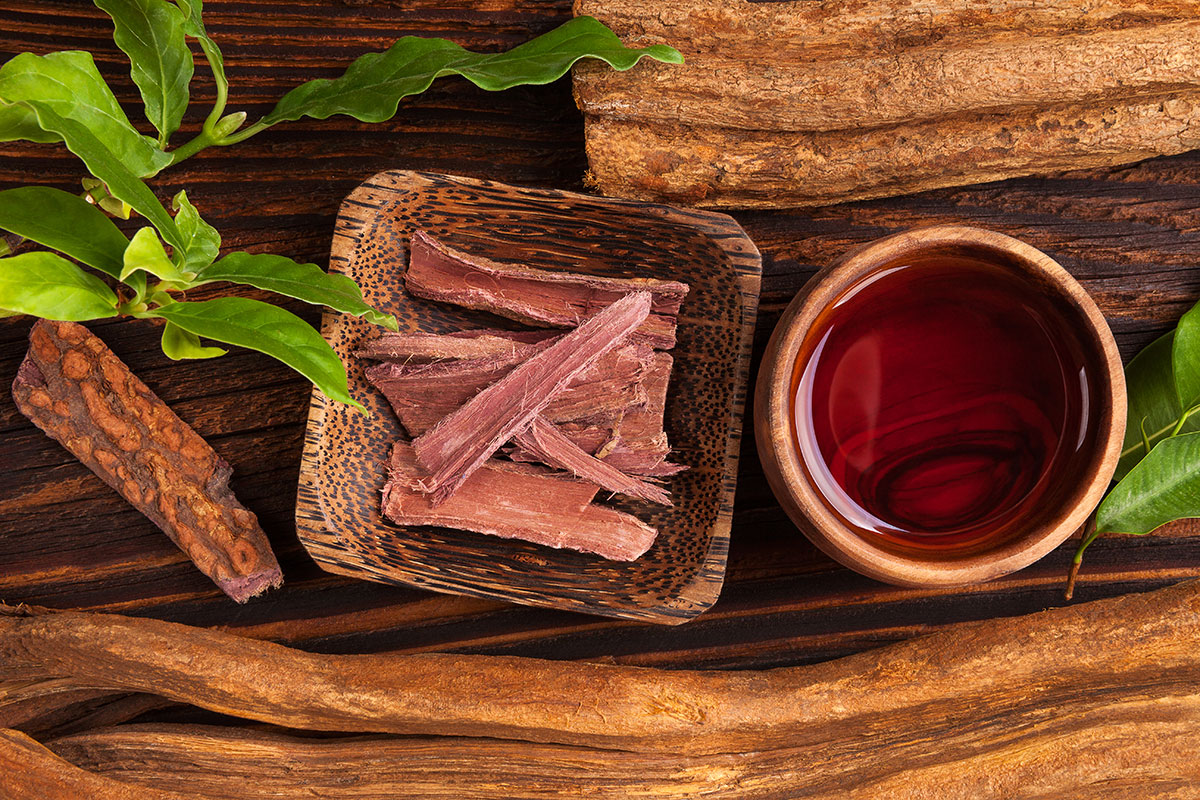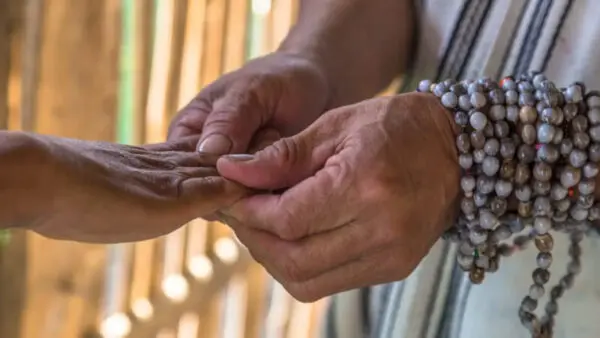Medical Editor: Dr. David Cox, PhD, ABPP
The sacred ayahuasca brew has long been used by Amazonian peoples for its therapeutic benefits and is now garnering attention from the scientific community for the ways in which it impacts how the brain functions.
Ayahuasca is typically made by mixing two Amazonian plants: the ayahuasca vine (Banisteriopsis caapi) and the chacruna shrub (Psychotria viridis). This mix contains the psychoactive compound N, N-dimethyltryptamine (DMT), as well as the alkaloids harmine, harmaline and tetrahydroharmine.
One crucial potential effect of ayahuasca that has recently emerged is its power to promote neurogenesis. Neurogenesis is essentially the growth and development of neurons in the brain, which can then interact with other neurons to create new connections and networks. Neurogenesis is linked to three principal areas of cognitive activity: learning, memory, and reversing depression.
While this process is most active in unborn babies, neurogenesis does continue during adulthood in both the subventricular zone and in part of the hippocampus region (the area of the brain associated with learning and memory). However, as we age, the process of neurogenesis is unable to replace all of the neurons that get damaged, which can lead to neurodegenerative conditions such as dementia and Alzheimer’s Disease.
In this article, we’ll look at the research surrounding ayahuasca and neurogenesis, and what it might mean for people who drink ayahuasca.
Research on Ayahuasca and Neurogenesis
Existing studies on the potential of ayahuasca to promote the formation of new neurons show promise, but are by no means conclusive on what the impact is on human participants.
In 2017, the Beckley/Sant Pau Research Programme published a study that found that some of the alkaloids present in ayahuasca stimulate the birth of new neurons, in vitro (outside of a living organism).
In the experiment, researchers combined the two most prevalent alkaloids in ayahuasca in a petri dish, harmine and tetrahydroharmine, with hippocampal stem cells taken from the brains of mice. They found that the alkaloids actually sped up the development of the stem cells into fully mature neurons. This study was groundbreaking in that it was the first to indicate that components in ayahuasca could have neurogenic properties, blowing open the potential for future research.
However, research conducted on stem cells in a petri dish is a far cry from doing the same with a living brain. While this initial study laid fertile ground for new discoveries, it wasn’t enough to draw conclusive insights.
On a quest to produce in vivo results, a team of researchers from the Complutense University of Madrid conducted another study to explore what exactly ayahuasca does to a real brain in terms of neurogenesis. The research team injected the Amazonian brew into the brains of mice and, after analyzing their hippocampi, found that it did in fact promote the growth of new neurons. Not only that, but those rodents that received the psychedelic tea performed better on memory tasks than those that didn’t—indicating that the newly-formed neurons were functional, and had increased the mice’s cognitive abilities.
So, what does this mean for people who drink the sacred Amazonian ayahuasca brew?
What Does This Mean for Ayahuasca Drinkers?
Between petri dishes and mice brains, you might be thinking: Could ayahuasca actually help maintain cognitive processes and help to prevent degenerative neurological disorders? The answer is: we don’t yet know, but it’s possible.
One of the researchers from the 2017 and 2020 studies, José Ángel Morales-Garcia, said in a statement (about the 2020 study), “This capacity to modulate brain plasticity suggests that it has great therapeutic potential for a wide range of psychiatric and neurological disorders, including neurodegenerative diseases.”
“The challenge is to activate our dormant capacity to form neurons and thus replace the neurons that die as a result of the disease. This study shows that DMT is capable of activating neural stem cells and forming new neurons,” he continued.
The death of certain types of neurons can lead to conditions such as Alzheimer’s and Parkinson’s, so the capacity of DMT to promote their development means there’s potential that it could delay or even prevent the onset of these diseases.
What’s more, other research has found links between ayahuasca and antidepressant activity in the brain. Deficits in neurogenesis in the hippocampus have previously been found to be associated with depression, suggesting that an increase in neuron development in this area could also be associated with the antidepressant effects of ayahuasca. So, not only might ayahuasca aid with learning and memory, but its potential neurogenetic properties may also help people fight depression.
However, it’s important to not get ahead of ourselves or the science. While certainly promising, the two studies outlined earlier are lacking a key component to be able to understand the effects of ayahuasca on neurogenesis: a human brain. We can conclude that it is indeed possible for ayahuasca to have an impact on neuron formation in the human brain, but until those studies are completed, we cannot know for certain.
The human brain is incredibly complex, and there’s no doubt that research on how certain psychedelics interact with it is only just getting started. When it comes to ayahuasca, the potential to explore further potential psychological benefits is huge.
Are you interested in finding out more about ayahuasca and what’s involved in drinking the sacred Amazonian brew? Check out our complete beginners guide to ayahuasca for everything you need to know.







